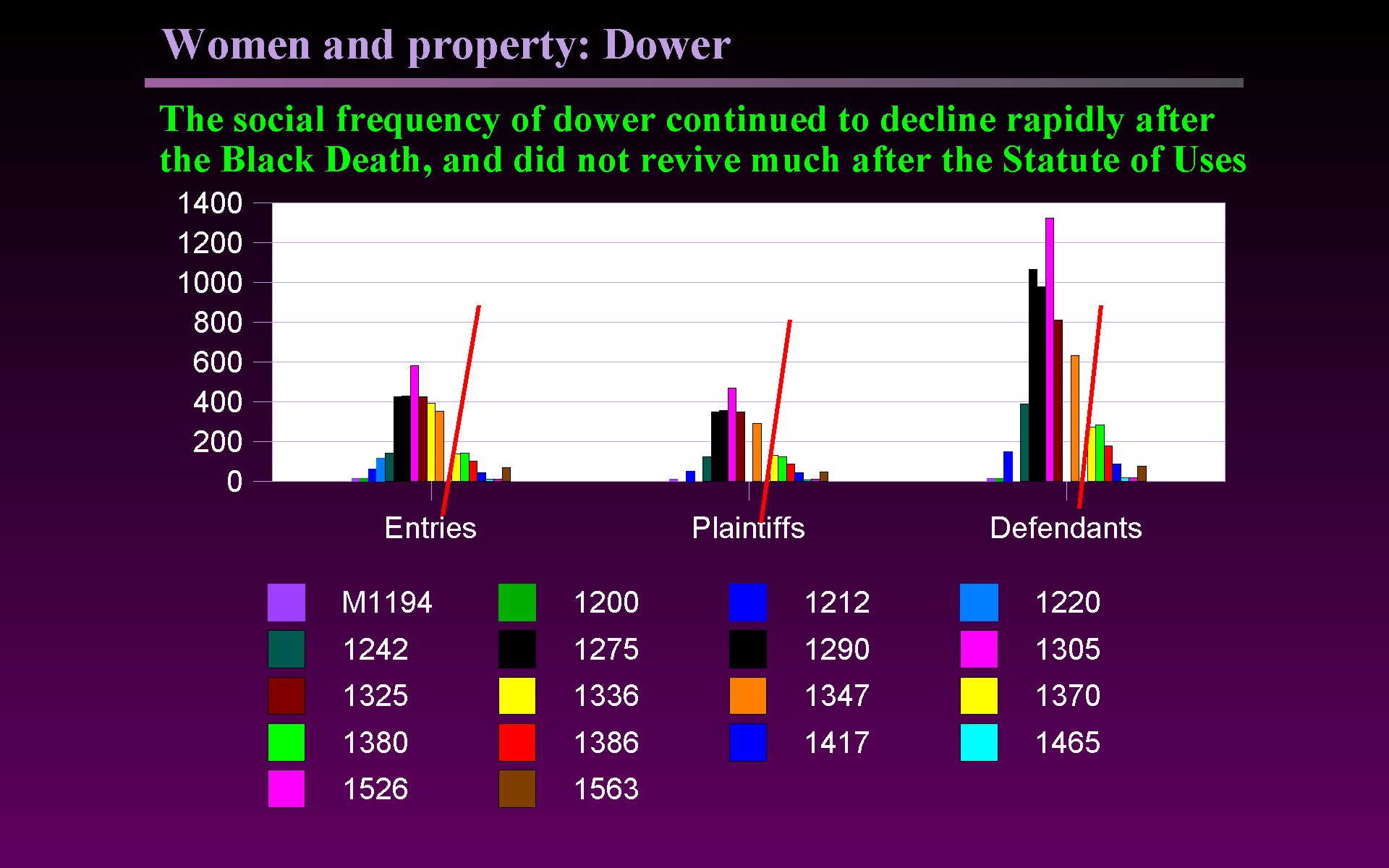


Dower
The social frequency of dower declined after the Black Death. Dower, by the early thirteenth century, was a third of any real estate of which the husband was seised heritably at any time during the marriage, to be held for the duration of the widow's life. Dower was one of the most frequent actions at common law prior to the Black Death, although many of those actions were not very litigious but only a mechanism to bring together the heir of the deceased husband and purchasers who might have to surrender to the widow a portion of the land they had purchased from the deceased husband. In non-litigious contexts, the heir could then provide to the widow an equivalent substitute for the dower instead of thereafter compensating each purchaser for the loss.
After the Black Death dower suits dramatically declined in number because the common law declined to examine arrangements that set up the use (the precursor of the modern trust). See Palmer, English Law in the Age of the Black Death (1982), chapter 9. If the male granted the real estate to feoffees to uses prior to marriage, then he would never be seised of the land during the marriage and dower right would not append. Dower law remained stable, but the common law after the Black Death refused to destroy the development of mechanisms to subvert it. By the late fifteenth century a plea roll might have only a dozen dower cases, as compared to several hundred cases prior to the Black Death. Even after the Statute of Uses dower did not rebound to its former levels, because widows had to choose between jointure and dower. The consequences of the decline of dower were greatest for the wife during marriage, because it left the husband with discretion to determine what his widow would receive after his death. Seemingly most husbands did provide for the widow in a use; social mores dictated some provision for the widow. The decline of the social frequency of dower right should be viewed primarily as a reallocation of power within the family while the husband was still alive.
The spike in dower cases at the end of the reign of Edward I is probably anomalous. The small decline in dower in the first half of the fourteenth century is probably a consequence of the strength of the widow's right, that is, the heir was simply pre-empting dower litigation by offering the widow an acceptable congruent alternate life estate instead of insisting that the widow proceed to sue and thus inconvenience purchasers.

AALT Homepage





